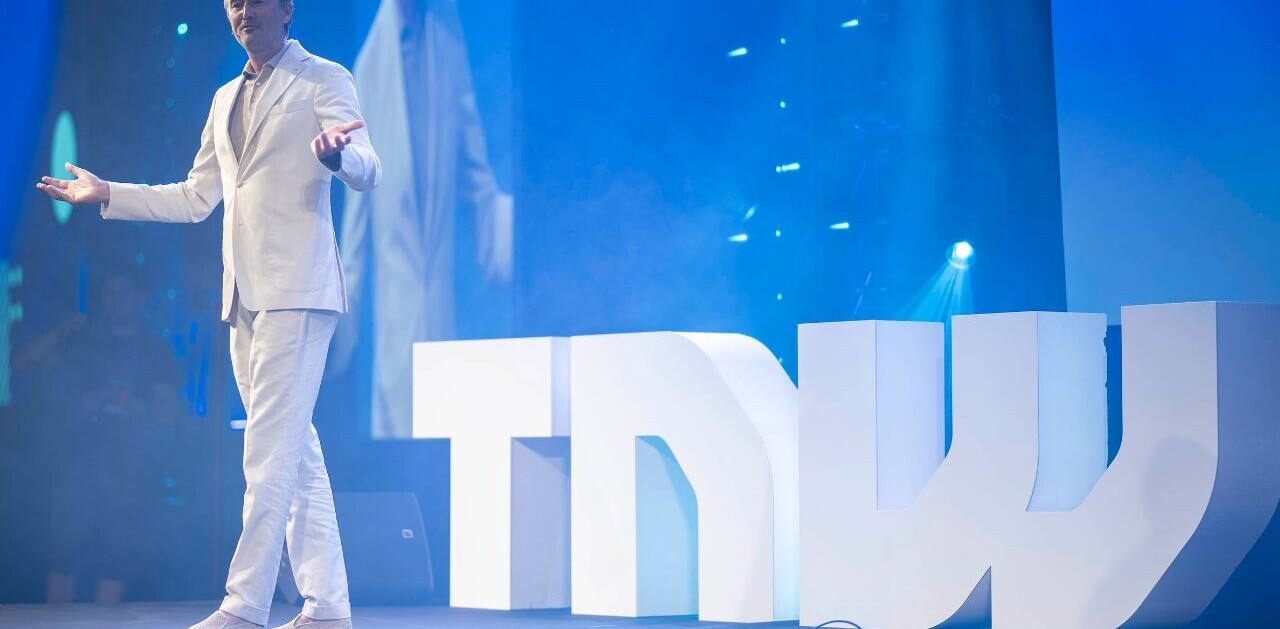
The startup scene in the Nordics is bustling, driven by well-established and evolving hubs alike. Among the region’s growing tech forces is Oslo, which analysts have ranked 17th in the top 100 emerging ecosystems in the world.
Norway’s capital city houses over 2,000 startups and scaleups, with particular strengths in ICT, healthtech and life sciences, energy, and fintech.
Oslo is also home to seven unicorns, including popular game-based learning platform Kahoot!, paper tablet developer reMarkable, and industrial SaaS startup Cognite.
While the city’s startups saw VC funding decrease to €862mn in 2023 (from €1.3bn in 2022), Oslo remained among the top 15 European cities for venture capital investment in the first quarter of 2024. It raised a total of $236mn — a 35% increase compared to the same period last year.
To get a closer look at Oslo’s startups, TNW took a trip to the Scandinavian city. We’re zooming in on four companies you should know about:
Strise
Strise joined the fight against financial crime in 2019 by launching its anti-money laundering (AML) automation software. Since then, it has become a key player in the Nordics, with 70% of the region’s top-tier banks, including Nordea and Danske Bank, using its services.
The startup was founded by Marit Rødevand, Sigve Søråsen, and Patrick Skjennum.
The trio had their Eureka moment during a research project on data models at Norway’s NTNU university. Although they had no previous experience in banking, they recognised that their AI software could track funds flowing through the sector.

“Twelve years ago, the HSBC $881mn money laundering scandal with the Mexican cartels put AML under everyone’s radar and increased regulations,” Rødevand tells TNW. “But banks’ risk assessment processes are still heavily manual, which means they’re time-consuming and prone to errors.”
To address this, Strise has developed an end-to-end AML automation cloud. The startup combines advanced graph models, GenAI, and Natural Language Processing (NLP) to collect, analyse, and validate real-time customer data. This includes both onboarding and ongoing monitoring checks, such as due diligence (DD), KYC (know your customer), and KYB (know your business) checks.
Strise also provides customisable solutions and a number of different APIs. “Our approach is covering both the need for data and for automated, more efficient workflows,” Rødevand says.
According to the startup, its clients claim 90% faster due diligence and software cost reductions of up to 30%.
Strise has raised €15.5mn in funding and is now expanding to the UK. In time, it plans to enter more European markets and the US. “Our long-term vision is to help eradicate financial crime,” Rødevand says. “In the future, we aim to build AI solutions for more related verticals.”
Databutton
Riding the no-code movement but with a twist, Databutton has developed a GenAI web app developer.
Founded in 2021 by Cognite alumni Trygve Karper, Martin Røed, and Viral Shah, Databutton enables anyone to quickly build an application by chatting with an AI interface — without requiring programming skills.
Using the ChatGPT-4 API, the startup provides three AI agents: one helps build the backend of the app, another provides the user interface (UI), and a third simulates discussions about the overall idea.
According to Shah, who’s also serving as the company’s CPO, the collaborative process is entirely conversational.
“As a user, you have a lot to contribute. You understand your domain, you understand the business that you work in, you understand the data that you’re using in the app,” he tells TNW. “These are things that the model doesn’t understand.”

Compared to typical no-code tools, Databutton claims increased flexibility.
“No-code platforms have a limited set of building blocks for the backend. The same goes for UI integrations,” Shah says. He explains that the startup’s GenAI features generate code through conversation, which enables users to use any API or integrate any database. “That’s because what you generate is Python code.”
This also means that it’s possible to use existing libraries in Python or in React for UI components.
Databutton mainly targets professionals in roles adjacent to developers, such as product managers, UX designers, and technical customer success specialists. This is also the market where it’s seeing the biggest demand for its product.
The startup counts over 5,000 users across the globe, while its platform’s use cases span from healthcare and education to fintech and e-commerce. It has raised €4.6mn in funding to date.
Zerolytics
Amidst a global push (and need) for carbon neutrality, Zerolytics is developing a data-driven platform that assesses the credibility of companies’ net-zero targets.
With this tool, the startup aims to help asset managers identify net-zero investments that can also deliver competitive financial returns.
For asset managers, navigating the intersection of climate action and profit can be “a tricky balance,” says Zerolytics CPO and co-founder Atle Christiansen. “We believe that it doesn’t have to be.”
The startup’s platform measures the green transition readiness and progress of companies by calculating the gap between projected tracks for net zero and stated reduction targets. It also quantifies the financial implications of achieving carbon neutrality through different courses of action.
According to Christiansen, these insights are key for the decision-making process of asset managers. “Existing tools are too simplistic, essentially analysing historical emissions and performing trend forecasts,” he tells TNW.
“We need more advanced tools that connect historical emissions with what companies are actually doing, taking into account that the net-zero transition isn’t linear but depends on the interplay of multiple factors.”

To analyse and forecast the interaction of intertwined factors, Zerolytics uses system dynamics modelling. The startup has also developed financial digital twins to enable users to simulate different net-zero pathways and evaluate the financial impact of changes in key parameters.
The startup’s tools currently target Climate Action 100+ focus companies, which represent the world’s biggest greenhouse gas emitters. The list includes the likes of Shell and BP. In time, Zerolytics will expand its model according to its clients’ needs.
Zerolytics was founded in 2022 by Christiansen, Per-Otto Wold, Bent Erik Bakken, Vegard Egeland, and Morten Hofgaard Jørstad.
The startup has already soft-launched its platform to a number of selected asset managers for feedback. It plans to fully launch later this year. In its latest funding round in 2023, Zerolytics raised €3.5mn.
Otovo
Founded in 2016 by Andreas Thorsheim and Simen Fure Jørgensen, Otovo’s mission is to support Europe’s transition to residential solar power.
The startup provides an online marketplace that connects a network of local, vetted installers with consumers who wish to install solar panels on their roofs. “Think of it as an Airbnb or Uber for solar,” Thorsheim tells TNW.
The concept was born when the founding duo realised that the continuously decreasing price of solar panels meant that the switch to solar was more of a “last-mile delivery problem,” Thorsheim says.
Among the growing number of startups seeking to make solar panel installation as easy as any online purchase, Otovo stands out with its proprietary technology.
The startup uses machine learning to analyse satellite and mapping information for any given house. It calculates the house’s shape and determines the amount of panels that fit on the roof. “We call it ‘the Tetris operation’,” Thorsheim says.
The software then presents different solar panel options (in number, size, and type) and matches house owners with the most competitive offers from local installers. Otovo manages the entire process from selection and installation to maintenance. Consumers can pay upfront for the service or opt for a monthly subscription.

According to Thorsheim, it took Otovo two years to convince installers in Norway to sign up on the platform. Now, the startup counts 980 installer companies across 13 markets, including the UK, the Netherlands, Spain, and Italy. It has completed over 25,000 installation projects.
In 2021, Otovo added battery systems to its offerings to enable storage of surplus solar energy for later use.
The same year, the startup went public after listing on the Euronext Growth stock exchange. To date, it has raised €150mn in equity and €100mn in debt.
When it comes to climate tech, Norway works as a “future lab” for what Europe is going to look like in the next three to five years, Thorsheim says.
“That’s great for the startup ecosystem here. We get to test what the future can be in a smaller environment.”
Get the TNW newsletter
Get the most important tech news in your inbox each week.





